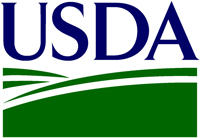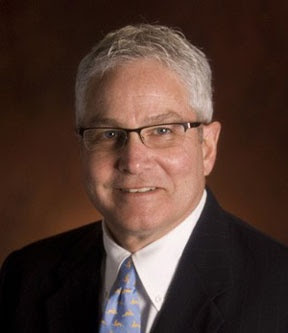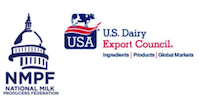USDA Halts Imports of Fresh Brazilian Beef
 U.S. Secretary of Agriculture Sonny Perdue announced the suspension of all imports of fresh beef from Brazil because of recurring concerns about the safety of the products intended for the American market.
U.S. Secretary of Agriculture Sonny Perdue announced the suspension of all imports of fresh beef from Brazil because of recurring concerns about the safety of the products intended for the American market.
Since March, USDA’s Food Safety and Inspection Service (FSIS) has been inspecting 100% of all meat products arriving in the U.S. from Brazil. FSIS has refused entry to 11% of Brazilian fresh beef products. Since implementation of the increased inspection, FSIS has refused entry to approximately 1.9 million lbs. of Brazilian beef products due to public health concerns, sanitary conditions, and animal health issues. It is important to note that none of the rejected lots made it into the U.S. market.
Perdue said, “Ensuring the safety of our nation’s food supply is one of our critical missions, and it’s one we undertake with great seriousness. Although international trade is an important part of what we do at USDA, and Brazil has long been one of our partners, my first priority is to protect American consumers. That’s what we’ve done by halting the import of Brazilian fresh beef. I commend the work of USDA’s Food Safety and Inspection Service for painstakingly safeguarding the food we serve our families.”
Panel Offers Food Company Perspectives
The Opening Session of the American Seed Trade Association (ASTA) annual meeting featured three speakers offering “Perspectives from Today’s Major Food Companies.” John Wiebold from General Mills, Jenny Verner from Cargill, Inc., and Autumn Price representing Land O’Lakes each addressed the audience before participating in a panel discussion and taking questions from the audience. Each spoke of the challenges of feeding the world balanced against the needs of the environment and the changing consumer who is more aware of these issues.
 “We believe the work that we do upstream in our supply chain has a direct impact on the ecosystems around the world and we want to leverage that for positive,” said John Wiebold regarding General Mills. “So as we roll forward not only do we want to help farmers but we want to help farming communities around the world.”
“We believe the work that we do upstream in our supply chain has a direct impact on the ecosystems around the world and we want to leverage that for positive,” said John Wiebold regarding General Mills. “So as we roll forward not only do we want to help farmers but we want to help farming communities around the world.”
“Farming is not big gardening,” he continued. Crops need a stable climate and it’s important to work across the entire value chain to ensure crops are available now and in the future. Listen to Wiebold’s full remarks here: Remarks by John Wiebold, General Mills
 The challenges of nourishing 9 billion people concern the folks at Cargill as well, noted Jenny Verner. “You care a lot about what you put into your body, what you feed your family, what you feed your friends. And so for us as an industry, it really is a powerful opportunity to work collaboratively to help people come together and solve the world’s issues.”
The challenges of nourishing 9 billion people concern the folks at Cargill as well, noted Jenny Verner. “You care a lot about what you put into your body, what you feed your family, what you feed your friends. And so for us as an industry, it really is a powerful opportunity to work collaboratively to help people come together and solve the world’s issues.”
Those solutions will involve transparency, sustainability, and trade, Verner asserts. Listen to her full address here: Remarks by Jenny Verner, Cargill, Inc.
 Autumn Price reiterated that Land O’Lakes believes in these ideals too, but also stressed support for science-based farming.
Autumn Price reiterated that Land O’Lakes believes in these ideals too, but also stressed support for science-based farming.
“We’ve stayed true to our roots as a farmer-owned cooperative and are honored to be advocates to the farmers and producers who are our members. We’ve also expanded and evolved our businesses to meet the challenges and changing demands of farmers, customers, and consumers in the last 100 years.” Listen to her comments here: Remarks by Autumn Price, Land O’Lakes
ASI Debuts SheepCast
 The American Sheep Industry (ASI) debuts their broadcast, SheepCast. The weekly audio program is designed to keep you up to date on the latest happenings in the sheep industry.
The American Sheep Industry (ASI) debuts their broadcast, SheepCast. The weekly audio program is designed to keep you up to date on the latest happenings in the sheep industry.
This week, ASI discusses the efforts on behalf of the nation’s 88,000 sheep producers. Top priorities are maintaining support for agricultural research in the upcoming farm bill and continued work toward ensuring producers have access to effective predator control through USDA Wildlife Services.
Trump Commits to Agriculture in Iowa
 President Donald Trump stood among various models of John Deere and Case IH farm equipment as he pledged to boost agriculture exports, loosen federal regulations on the agriculture industry, and support ethanol and biofuels yesterday while speaking to a crowd of about 250 at Kirkwood Community College in Cedar Rapids, Iowa.
President Donald Trump stood among various models of John Deere and Case IH farm equipment as he pledged to boost agriculture exports, loosen federal regulations on the agriculture industry, and support ethanol and biofuels yesterday while speaking to a crowd of about 250 at Kirkwood Community College in Cedar Rapids, Iowa.
“Today we are celebrating the dignity of work and the greatness of the American farmer,” said President Trump. “I’m not a farmer, but I’d be very happy to be one. It’s a very beautiful world to be in.”
President Trump began his speech by congratulating former Iowa governor Terry Branstad before he leaves for Beijing on Friday to begin serving his new role as U.S. Ambassador to China. Branstad stepped up to the podium following the send-off to praise the Trump Administration’s work in re-gaining access for U.S. beef in China.
In his speech, President Trump pledged to support and protect corn-based ethanol and biofuels, emphasized his commitment to reforming the nation’s existing trade agreements, advocated for improving rural infrastructure, including access to rural broadband and increased resources for vocational programs like Kirkwood, and pledged to eliminate “the intrusive rules that undermine farmers’ ability to make a living.”
“U.S. farmers produce great products, but you have to work too hard and too long to make a living,” said President Trump. “We’re going to make it easier to produce and grow in America by eliminating job-killing regulations and supporting schools like Kirkwood that are helping to train young people in the cutting edge technologies that are making American agriculture greater and more productive than ever before.”
Prior to his speech, President Trump toured Kirkwood and learned about the institution’s successful precision agriculture program. He expressed sincere understanding and respect for the technologies that have advanced modern agriculture and pledged his support for the continued advancement of agricultural technologies and educational programs.
“If we continue to train our workers in these new technologies, then we will usher in a new era of prosperity for American agriculture and for the American farming family,” he said.
Listen to the full speech here: President Trump at Kirkwood Community College
Joe Swedberg to Lead Farm Foundation Board
 Joe C. Swedberg of Longmont, CO., was elected to serve as chairman of the Board of Directors of Farm Foundation on June 9th at the Board’s annual meeting in Charlottesville, VA, succedding Mark Scholl from Owensboro, KY. Larkin Martin, Courtland, AL, was elected to serve as Vice Chair.
Joe C. Swedberg of Longmont, CO., was elected to serve as chairman of the Board of Directors of Farm Foundation on June 9th at the Board’s annual meeting in Charlottesville, VA, succedding Mark Scholl from Owensboro, KY. Larkin Martin, Courtland, AL, was elected to serve as Vice Chair.
In addition to the election, the Farm Foundation Trust Agreement name has been changed to Legge Lowden Farm Foundation Trust. The six-member Board of Trustees will have responsibility for the Trust and insuring the mission of the Trust is fulfilled. The operating entity has also recieved a name change, moving from Farm Foundation, NFP to Trust to Farm Foundation.
2017 World Pork Expo: The Highlights
 More than 20,000 pork producers and ag professionals from throughout the world attended the 29th World Pork Expo, June 7-9, in Des Moines. Presented by the National Pork Producers Council (NPPC), the 2017 Expo hosted more than 1,000 international guests from nearly 40 countries. We spent the days mainly in the media room covering the latest from the pork community. Content has been accumulated in its own Virtual Ag Newsroom at AgNewswire sponsored by Aptimmune Biologics.
More than 20,000 pork producers and ag professionals from throughout the world attended the 29th World Pork Expo, June 7-9, in Des Moines. Presented by the National Pork Producers Council (NPPC), the 2017 Expo hosted more than 1,000 international guests from nearly 40 countries. We spent the days mainly in the media room covering the latest from the pork community. Content has been accumulated in its own Virtual Ag Newsroom at AgNewswire sponsored by Aptimmune Biologics.
This virtual newsroom includes links to photos, audio, and video from the conference. All content posted here is available free of charge for digital or print publication or broadcast. Credit can be given to AgNewsWire.
Highlights Include:
“World Pork Expo gives producers the opportunity to see and touch the newest products and technologies for their pork businesses,” says Ken Maschhoff, NPPC president and Illinois pork producer. “It’s a place for producers to interact with each other and share ideas. It also gives employees at all levels a chance to learn, deepen their connection to pork production and have some fun.” Interview with Ken Maschhoff, NPPC president
The National Pork Board, with support from the U.S. Department of Agriculture, announced a new program during this year’s expo. The Secure Pork Supply Plan is a voluntary program designed to support American farmers during a foreign animal disease outbreak. The plan is supported by health officials, not only because it will support them during an outbreak, but also because it can help with understanding where the disease is and isn’t. Interview with Patrick Webb, National Pork Board
On opening day of World Pork Expo, Aptimmune Biologics launched the world’s first commercially available mucosal PRRSV vaccine for swine. “Aptimmune has benefited from ground-breaking research conducted at the University of Illinois, The Ohio State University, and several private companies,” said Aptimmune CEO Aaron Gilbertie during a press conference. “We are proud the launch of BARRICADE® validates our collaborative innovation model. We are exceptionally pleased with early customer feedback. In the coming months, we expect to launch additional vaccines formulated with BARRICADE®, including influenza.” Interview with Aptimmune CEO Aaron Gilbertie
All photos from #WPX17 can be viewed and/or downloaded here: 2017 World Pork Expo photos
SMART Farmer US Poultry
 In this edition of the SMART Farmer podcast we head south to learn a little bit about poultry production and how it has gotten smarter, more efficient and more sustainable over the years.
In this edition of the SMART Farmer podcast we head south to learn a little bit about poultry production and how it has gotten smarter, more efficient and more sustainable over the years.
Monty Henderson started as a broiler service manager with Tyson Foods and later with Campbell Soup Company. He served as president of Pilgrim’s Pride Corporation and in 1994 joined George’s, Inc., as president and CEO where he retired in 2010. In addition to serving as a past chairman for U.S. Poultry and Egg Association, Henderson has served on the Board of Directors for the National Chicken Council and as a director of the American Egg Board, and now represents the poultry industry on the board of the U.S. Farmers and Ranchers Alliance.
Henderson shares how smart technology helps producers keep birds at their optimum comfort level and how breeding and genetics have helped the industry go from taking nine weeks to grow a chicken to 3.5 pounds to today taking only 35 days to reach the same weight: SMART Farmer Podcast with Monty Henderson, USPOULTRY
Increased Access to Chinese Market for U.S. Dairy Exporters
 U.S. Dairy Export Council (USDEC), the National Milk Producers Federation(NMPF) and officials from the U.S. and China have reached an accord on dairy trade by signing a Memorandum of Understanding (MOU) that will increase access to China for more than 200 U.S. dairy exporters. The action creates new opportunities for dairy farmers and processors, and the milk, cheese, infant formula and ingredients they produce.
U.S. Dairy Export Council (USDEC), the National Milk Producers Federation(NMPF) and officials from the U.S. and China have reached an accord on dairy trade by signing a Memorandum of Understanding (MOU) that will increase access to China for more than 200 U.S. dairy exporters. The action creates new opportunities for dairy farmers and processors, and the milk, cheese, infant formula and ingredients they produce.
The MOU formally outlines a process in which third-party certification bodies, on FDA’s behalf, will audit U.S. dairy facilities to make sure they comply with Chinese food safety requirements. There was never a question of U.S. product safety. It was more a question of compliance with regulations between two countries with rigid regulatory systems.
“This deal marks a significant opportunity for the U.S. dairy industry,” said Tom Vilsack, president and CEO of USDEC. “China is already the world’s largest dairy importer, even though per capita consumption remains far below that of the United States, Europe and even its Asian neighbors like Japan and South Korea. The potential to increase exports there is tremendous.”
The Certification and Accreditation Administration of the People’s Republic of China (CNCA) and FDA needed to find a solution. Until that happened, no new U.S. dairy plants could be added to China’s list, effectively putting companies in a state of limbo, until this agreement.
The USDEC says U.S. companies can begin shipping once their plants have been officially listed as registered on the CNCA website.
Dairy & Poultry Groups Say Modernize NAFTA
 Leading animal agricultural groups representing the dairy and poultry sectors spoke out this week highlighting what a NAFTA modernization would mean for each of their prospective industries.
Leading animal agricultural groups representing the dairy and poultry sectors spoke out this week highlighting what a NAFTA modernization would mean for each of their prospective industries.
The U.S. Dairy Export Council (USDEC) and the National Milk Producers Federation (NMPF) sent comments to the U.S. Trade Representative describing the existing North American dairy landscape as one in which U.S. dairy products flow relatively unhindered to Mexico but are curtailed by Canada’s increasing use of policy tools violating international trade obligations.
“NAFTA has accomplished a great deal over the past two-plus decades, but it has also been overtaken by new, unanticipated forms of trade and trade problems,” said Tom Vilsack, USDEC president and CEO. “We agree that NAFTA could use a facelift and our industry looks forward to working with the Trump Administration to explore ways to preserve and strengthen it.”
Last year, the U.S. dairy industry exported $1.2 billion worth of dairy products to Mexico, a dramatic increase from $124 million in 1995. Mexico is the largest U.S. dairy export market by far, roughly double the size of the industry’s second-largest market, Canada.
![]() The National Chicken Council (NCC), USA Poultry & Egg Export Council (USAPEEC), and the National Turkey Federation (NTF) call Mexico their most important U.S. export market followed by Canada. They ask for:
The National Chicken Council (NCC), USA Poultry & Egg Export Council (USAPEEC), and the National Turkey Federation (NTF) call Mexico their most important U.S. export market followed by Canada. They ask for:
First, Canada and the U.S. had reached preliminary agreement on increasing the quotas for U.S. chicken into Canada. This would represent modest improvements in trade liberalization, but would not represent threats to current domestic policies or create market disruptions. The U.S. industry also believes that there should be similar increases in the market access for U.S. turkey and turkey products.
Second, significant progress was made in the course of TPP negotiations to improve and update the Sanitary and Phytosanitary (SPS) rules applicable to free trade agreements. This important work should not be lost. The poultry industry joins its fellow agricultural industries in urging the U.S., Canada and Mexico to adopt these improved SPS provision as a replacement to the SPS chapter currently in the NAFTA text.


